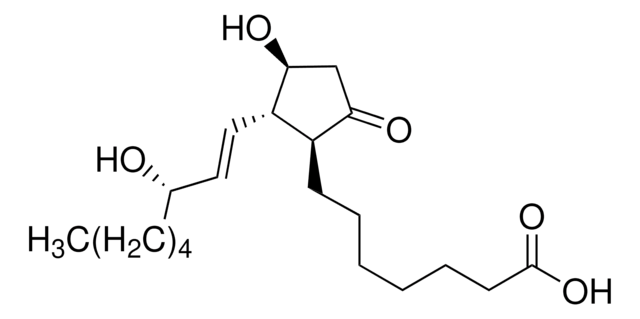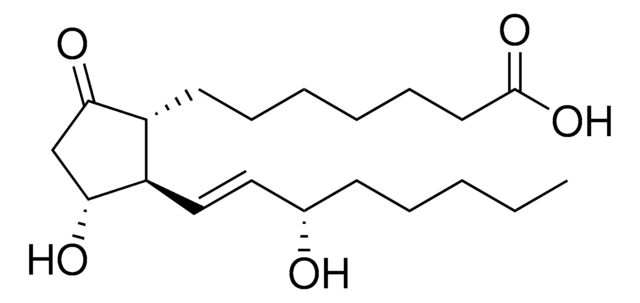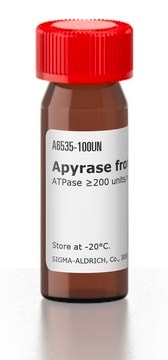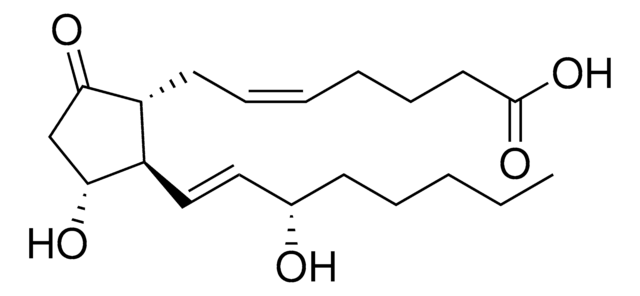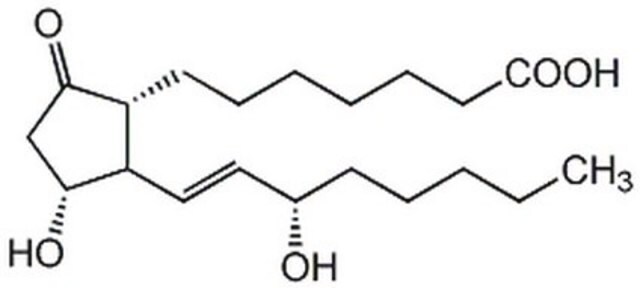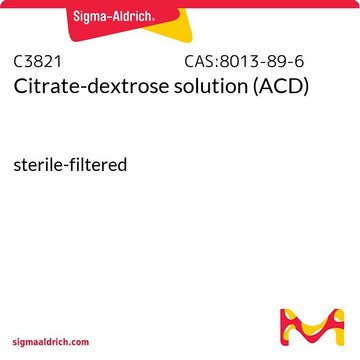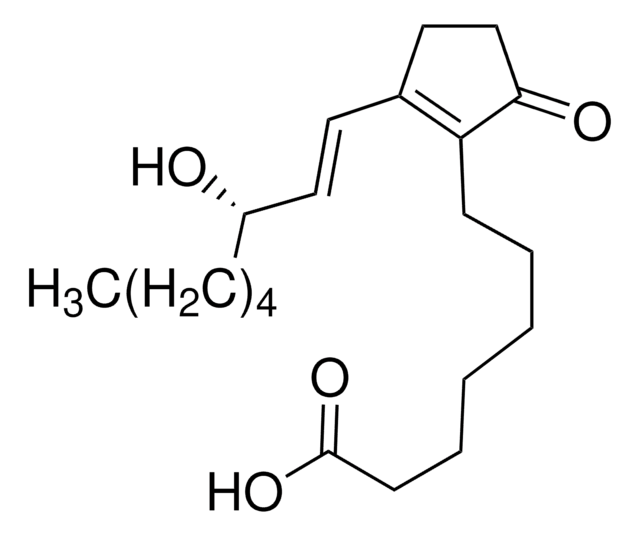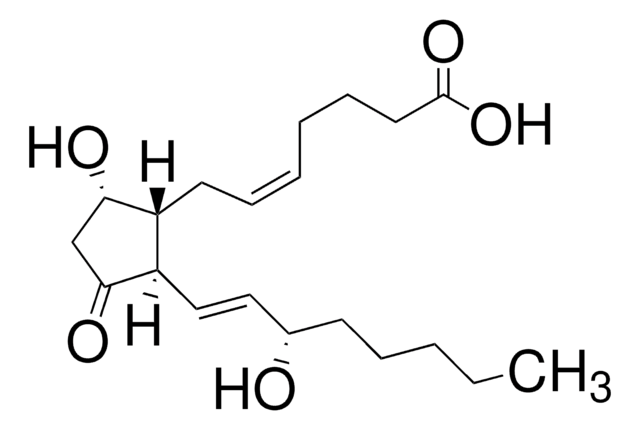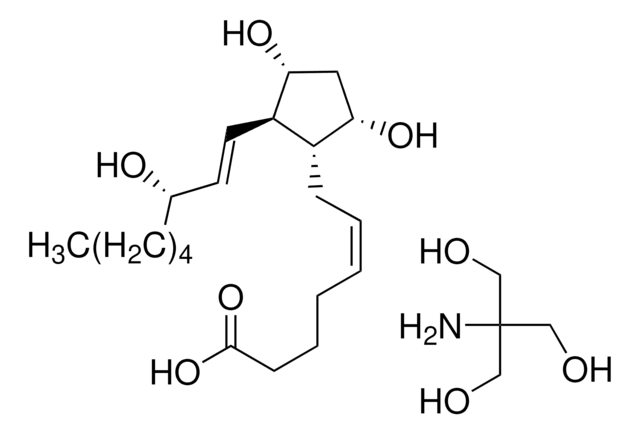P5515
Prostaglandin E1
≥98% (HPLC), powder, vasodilator
Synonym(s):
(11α,13E,15S)-11,15-Dihydroxy-9-oxoprost-13-enoic acid, Alprostadil, PGE1
About This Item
Recommended Products
product name
Prostaglandin E1, ≥98% (HPLC), synthetic
biological source
synthetic
Quality Level
Assay
≥98% (HPLC)
form
(powder to crystals)
solubility
ethanol: 5 mg/mL
storage temp.
−20°C
SMILES string
O=C1[C@H](CCCCCCC(O)=O)[C@@H](/C=C/[C@H](CCCCC)O)[C@H](O)C1
InChI
1S/C20H34O5/c1-2-3-6-9-15(21)12-13-17-16(18(22)14-19(17)23)10-7-4-5-8-11-20(24)25/h12-13,15-17,19,21,23H,2-11,14H2,1H3,(H,24,25)/b13-12+/t15-,16+,17+,19+/m0/s1
InChI key
GMVPRGQOIOIIMI-DWKJAMRDSA-N
Gene Information
human ... PTGER1(5731) , PTGER2(5732) , PTGIR(5739)
mouse ... Ptger1(19216) , Ptger2(19217) , Ptger3(19218) , Ptger4(19219)
Looking for similar products? Visit Product Comparison Guide
Application
- as a platelet inhibitor to analyse its effect on autophagy
- in platelet adhesion assay
- to investigate its effect on cAMP production in thyroid glands of normal and growth-retarded mouse in vitro.
Biochem/physiol Actions
Signal Word
Danger
Hazard Statements
Precautionary Statements
Hazard Classifications
Acute Tox. 3 Oral
Storage Class Code
6.1C - Combustible acute toxic Cat.3 / toxic compounds or compounds which causing chronic effects
WGK
WGK 1
Flash Point(F)
Not applicable
Flash Point(C)
Not applicable
Personal Protective Equipment
Certificates of Analysis (COA)
Search for Certificates of Analysis (COA) by entering the products Lot/Batch Number. Lot and Batch Numbers can be found on a product’s label following the words ‘Lot’ or ‘Batch’.
Already Own This Product?
Find documentation for the products that you have recently purchased in the Document Library.
Customers Also Viewed
Related Content
Discover Bioactive Small Molecules for Lipid Signaling Research
Our team of scientists has experience in all areas of research including Life Science, Material Science, Chemical Synthesis, Chromatography, Analytical and many others.
Contact Technical Service